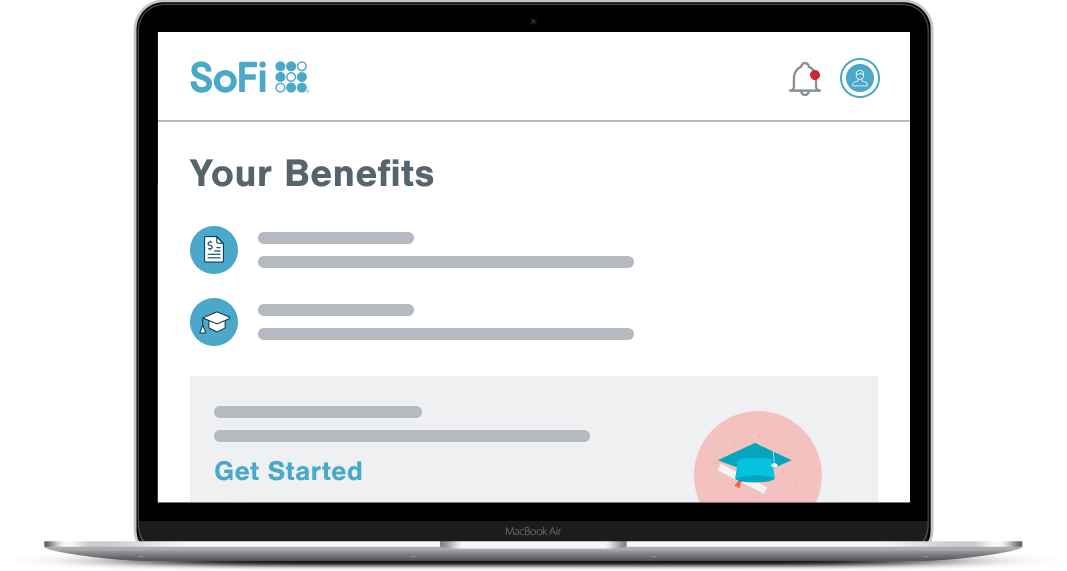Student Loan Center
You may get employer match on student loan payments
If you’re not contributing to your plan (or not enough to get the full match), you may get match in your retirement account by providing details about your student loan payments. Before you get started:
Explore exclusive benefits through SoFi
When you’re ready to tackle educational expenses, access your employer’s exclusive benefits through SoFi that can get you on track.

BROUGHT TO YOU BY

When will you pay off your student loans?
Use the Student Loan Payoff Calculator to determine when you’ll make your final payment.
Find out your
payoff date
ENTER YOUR INFO
BROUGHT TO YOU BY

How to make smart college loan decisions and evaluate loan forgiveness options
Sticking to federal direct student loans can help limit debt accumulated in college and give you the flexibility of income-driven repayment plans after college.

Balancing debt and savings
2:39
Balancing debt and savings
Paying off debt can feel like it should be your only priority—but it doesn't have to be. Find out how you can manage your debt while still saving for your financial goals.
Browse more tips for managing student loans
